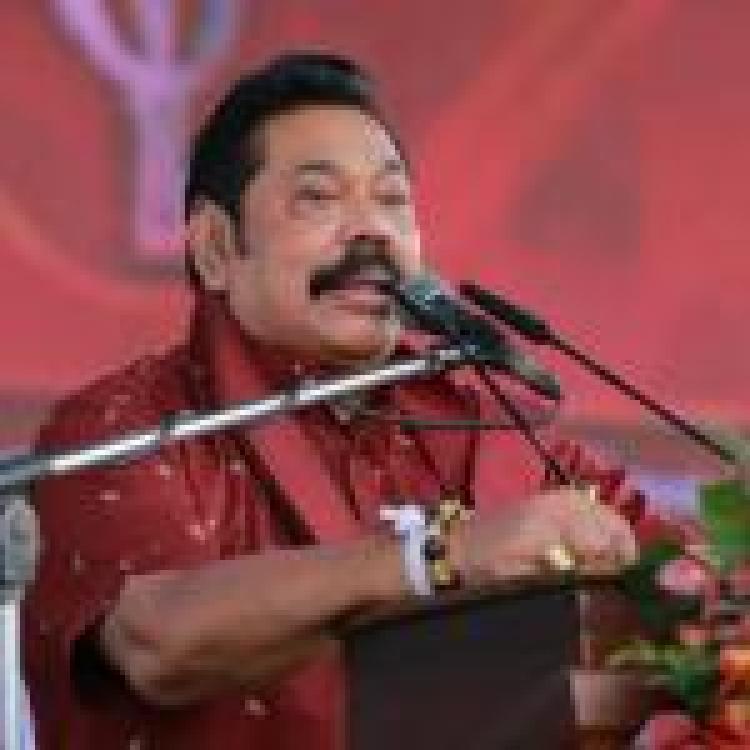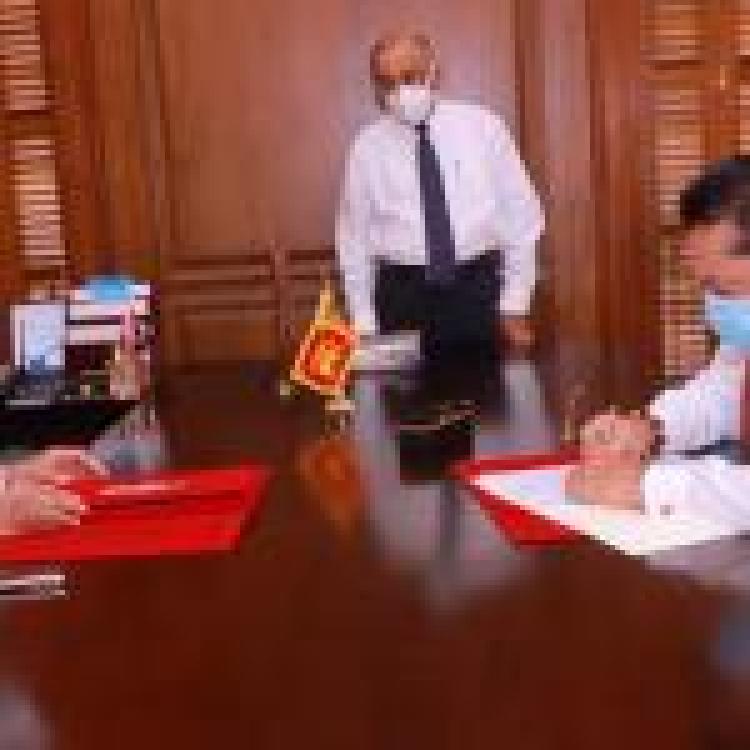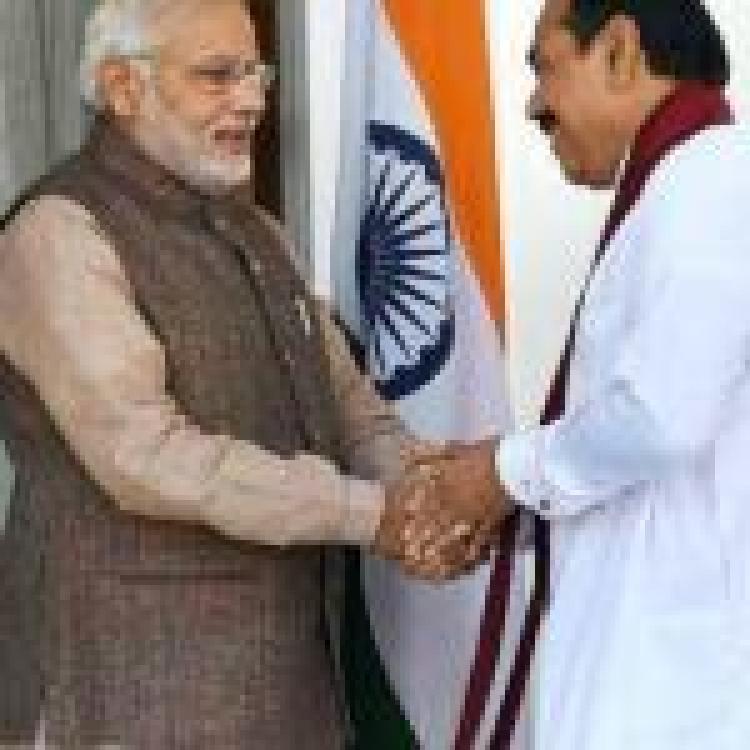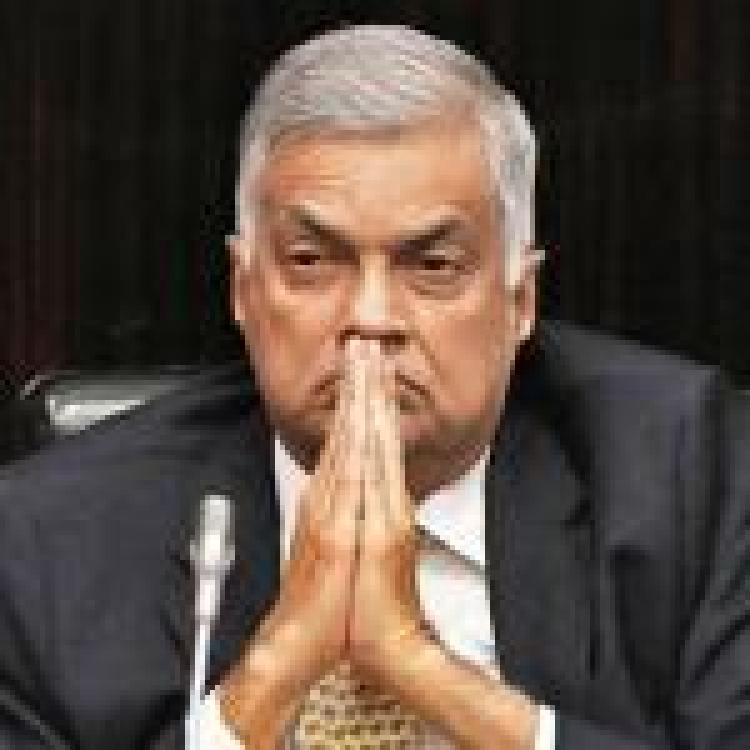![]()
Sri Lankan Prime Minister, Mahinda Rajapaksa, has the defended much criticised decision to dissolve parliament for over 6 months as he claims, “the hostile Parliament was not inclined to support the President”.
Rajapaksa defence of the President’s actions came a speech in which he maintained that the “global community will need to come forward to assist all developing nations”. He further requested IMF and World Bank to provide a debt standstill to all developing nations for two years, claiming that such relief will allow for a rapid recovery.
Sri Lanka’s current foreign debt repayments debt alone amount to 42.6% of the country’s GDP in 2019, with approximately $960 million owed to India and $5 billion to China in 2018. Sri Lanka faces loan repayments of US$2.9 billion this year alone.
Dissolution of parliament
Whilst Rajapaksa claims that there was “no alternative but to dissolve Parliament”, this decision has come under heavy criticism from human rights organisations as it has enabled an unprecedented period of “unconstitutional rule”.
Sri Lanka Campaign for Peace and Justice notes that Sri Lanka’s parliament was dissolved on 2 March and that the 2 June, marked the constitutionally permitted three-month period. We have since entered a period of “unconstitutional rule”. The refusal to reconvene parliament has enabled his administration to avoid democratic scrutiny and is a sign of worrying authoritarianism, Sri Lanka Campaign warns.
During this period, the Rajapaksa administration has established all Sinhala task forces which are headed by accused war criminals.
These task forces have been widely criticised by civil society actors and human rights activists as they are extraordinarily broad, and they have vague powers many of which overlap with existing civilian agencies. This raise concerns over transparency and accountability as challenging the decisions of the task force increasingly difficult.
Sri Lankan parliament was initially set to reconvene on 25 April, but this was delayed due to the coronavirus outbreak. On the 2 June, the Supreme Court also dismissed a number of cases which challenged the dissolution of parliament and the date set for the new election, 20 June. The Supreme Court has yet to publish their reasoning for this.
Economic Recovery
Rajapaksa also lamented Sri Lanka’s economic a significant drop in key industries such as “tourism, apparel, [and] manufacturing”. He calls for the country to be prepared to receive both “local and foreign investments in sectors such as infrastructure, information technology and transportation”. He also states that the country should be willing to “pursue opportunities to provide outsourced and online services to more advanced nations” as well as better utilising Sri Lanka’s mineral resources.
This statement comes as Sri Lanka’s state-owned Bank of Ceylon enters a long-term facility with the China Development Bank, the largest development financial organisation in the world, for USD $140 million this week.
Kanchana Ratwatte, Bank of Ceylon’s chairman, claimed the loan would help revitalise small to medium enterprises “associated with exports, fisheries, logistics, transportation, agriculture, manufacturing, etc”.
International investors are wary of investing in Sri Lanka given its recent downgrading in the Fitch ratings and militarisation of the country’s economy.
COVID-19 Response
Rajapaksa also claimed that the government has been successful in handling the COVID-19 situation.
This statement comes despite growing concern over Sri Lanka’s militarised response to the coronavirus from groups such as Human Rights Watch and Amnesty International.
Read Rajapaksa’s full statement here.




